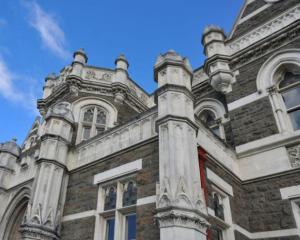Figures released last week show that although students placed in work were earning more and working longer, the number of students placed into jobs was down 19.2% - 1314 placed into work in the year to April, compared with 1626 in the corresponding period last year.
SJS chief executive Paul Kennedy said a decline in the number of placements nationally could be attributed to a drop in short-term jobs and its increased emphasis on securing long-term jobs.
The decrease was higher - 19% compared with 5% nationally - in Otago because an employer who had listed hundreds of one-off jobs with SJS last year no longer required workers this year.
Over the course of the year SJS would make enquiries on campuses around the country to see if students wanted more one-off jobs - for example gardening work - and if they did, SJS would make an effort to get more listed, Mr Kennedy said.
He said there was "anecdotal evidence" to suggest that short-term jobs were important for students who were in financial difficulty.
Meanwhile, total earnings by students who secured work through SJS in Otago had climbed by 29% to $2.66 million compared with last year.
Nationally, earnings had increased by 14%.
The decline in the number of one-off jobs listed came after SJS closed all of offices - including one at Otago University - last year, but Mr Kennedy said there was no evidence that shifting to a call-centre and online-based operation had put off potential employers.
Otago University Students' Association (OUSA) president Logan Edgar said students were an excellent option for employers.
"Dunedin is blessed. Local businesses can effectively employ the best this country has to offer while students are still papers shy of a degree, and so relatively cheap," he said.












